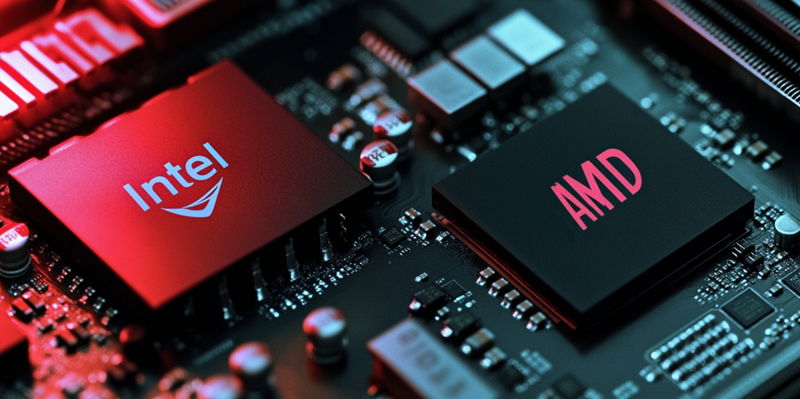The Korean DIY CPU market has seen a remarkable shift in recent months, with AMD making significant gains at Intel’s expense. The driving force behind AMD’s success has been its highly acclaimed Ryzen 7 9800X3D, a product that has captured the attention of both enthusiasts and mainstream users. This surge has allowed AMD to secure an impressive 62% of the market share, a notable increase from the 41% it held just a year ago. On the other hand, Intel has experienced a decline in its market share, which now stands at 38%, a drop largely attributed to the lackluster performance of its Core Ultra 200S CPUs in gaming applications.
One of the critical factors contributing to Intel’s challenges has been the underperformance of the Core Ultra 200S series. Many users have been disappointed with these CPUs’ gaming performance, which has not lived up to high expectations. Additionally, speculation regarding Intel’s next generation of CPUs and their potential incompatibility with the widely-used LGA 1851 socket motherboards has fostered uncertainty among users. This ongoing speculation has further discouraged potential buyers from investing in Intel products, leading many to consider AMD’s offerings as a more reliable and future-proof option.
Notably, the trends seen in South Korea are not isolated incidents but rather reflective of broader global patterns. AMD has been outperforming Intel in several other key markets, including Germany. This consistent performance across various regions indicates a well-executed strategy that has resonated with consumers worldwide. As Intel concentrates on optimizing its processors, it faces an uphill battle to match AMD’s current level of market performance. Analysts suggest that unless Intel can introduce competitive innovations quickly, AMD’s dominance is likely to continue.
In conclusion, the current landscape of the Korean DIY CPU market clearly showcases AMD in a strong position. The combination of a well-performing product line, strategic market positioning, and Intel’s missteps has contributed to AMD’s ascendancy. As consumers continue to seek out the best performance for gaming and other applications, AMD appears poised to maintain its lead unless Intel can address its current challenges and regain consumer confidence. For now, the tides have turned, and AMD is riding the wave of success both in South Korea and globally.

